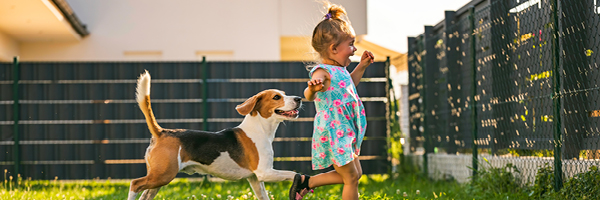
Whether you’re grilling out, gardening or splashing in the pool, your backyard is a space to relax and spend quality time with the people you care about. If anything were to happen, you would want to be able to get your yard back in shape.
You know your home insurance policy covers your house, but what about your backyard? Items like a shed, swing set, pool or even a few trees can affect how much coverage you need to recover from a loss. While your independent agent can determine the best coverage for your situation, here’s what coverage is needed for common backyard items.
Storage shed
A standard homeowners’ policy contains many different coverages in addition to the portion that protects your house. Your storage shed is protected as another structure on your property. Items protected under “other structures” also include detached garages, driveways and fences.
Grills, tools and other equipment
Most grills, lawn equipment and other items in your backyard are covered under the personal belongings portion of your policy. However, if you have an item that is particularly pricey, your standard policy may not contain enough coverage to replace everything after a loss.
One option is to raise your coverage limits. Keep in mind that there’s a cap on how much your insurance will cover for each individual item, as well as for the entire loss.
Alternatively, you can add endorsements to cover specific, high-value items. It may increase your premium, but you will be covered for more kinds of losses and your policy deductible doesn’t apply. This means that you could replace expensive equipment at no additional cost.
Pool
When protecting your pool, your coverage depends on if you have an in-ground or above-ground pool. In-ground pools are considered a structure, but above-ground and inflatable pools are considered personal property. Either way, both are protected to a degree with a standard homeowners’ policy. Be sure to talk with your agent about adding coverage to ensure that your pool is fully protected.
In addition, owning a pool increases your chance of having an accident. You may need to increase your liability coverage limits or add an umbrella policy, which helps cover costs once you’ve surpassed policy limits. Make sure you also take preventative safety measures, like installing a fence around your pool and never leaving children unattended.

Learn about our
Home Insurance
Fire pits
If your fire pit was installed after your homeowners’ insurance policy was written, it may not be covered. Be sure to disclose information about your fire pit to your independent agent to see if your policy covers it. Whether it is permanent or portable, fire pits can be a hazard for homeowners. Be sure to discuss with your agent if you have enough liability coverage should an accident involving your fire pit occur.
Landscaping and trees
If caused by a covered loss, like fire, vandalism or lightning, your homeowners’ insurance will cover damage to landscaping and trees. Like your lawn equipment, the amount your insurance company will contribute to your loss is capped and even more so by the individual item.
Trampolines and playsets
Backyard playthings are covered under your personal property coverage. If destroyed by a covered loss, your standard policy should cover your trampoline, swing set and more.
While a trampoline or playset can be a fun addition to your yard, these items put you at a higher risk of an accident. Consider adding a safety net to your trampoline and increase liability coverage. You could also add an umbrella policy to help cover you if someone is injured while playing on your property.
Be sure to discuss your backyard insurance with your agent. If you fail to disclose that you have items like a pool or a trampoline, a future claim could be denied. Withholding information on your home also puts you at risk for your policy to be cancelled entirely.
Your insurance agent can help you get the right coverage at the right price for you. Find a Grange agent and make sure your yard is properly insured today.
This article is for informational and suggestion purposes only. If insurance policy coverage descriptions in this article conflict with the language in the policy, the language in the policy applies. To learn more about home insurance coverage, speak with your local independent agent.